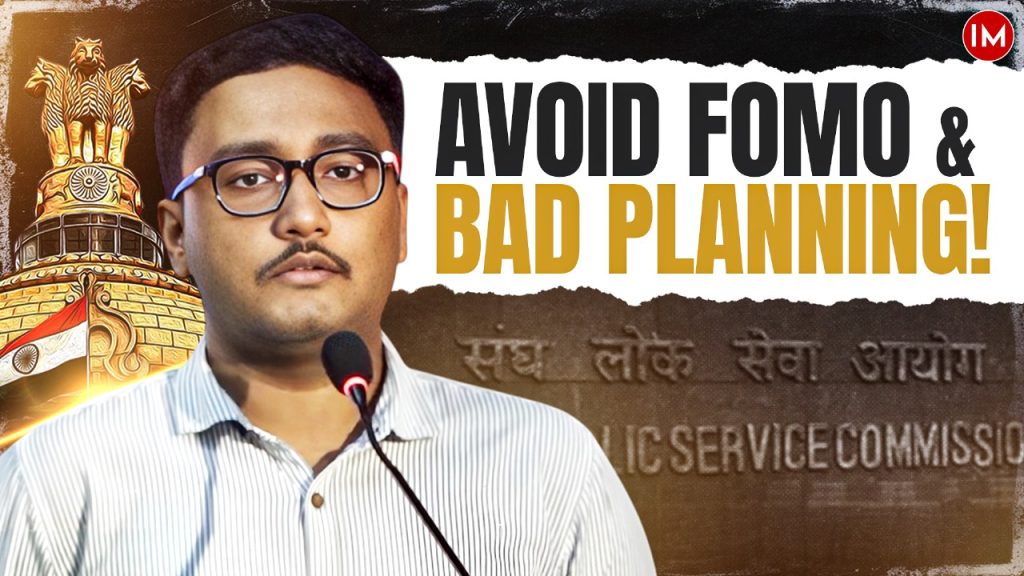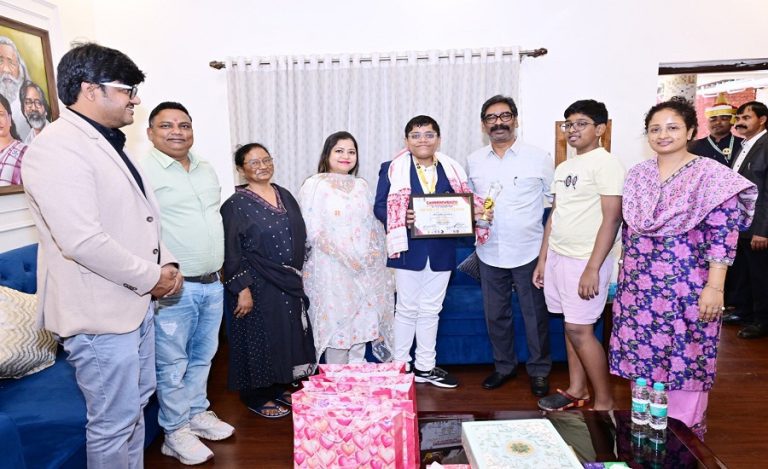When the Union Public Service Commission (UPSC) announced the Civil Services Examination (CSE) 2024 results, among the many names that stood out was Sagar Datta Majumdar, who secured All India Rank 317. For someone hailing from Agartala, Tripura, where exposure to the UPSC is still limited, this achievement was not just personal success but also a milestone for many aspiring candidates from smaller states.
EARLY LIFE AND INSPIRATION
Born and brought up in Agartala, Sagar completed his schooling at Ramakrishna Mission Vidyalaya up to Class 12. With a strong academic orientation, he later moved to Delhi to pursue Physics at Ramjas College, University of Delhi.
“In my state, the craze and exposure related to UPSC are a bit less compared to other states. When I was in school, I had no intention of writing civil service exams or any competitive exams. I was more inclined toward academics,” Sagar shared in an exclusive interview with Indian Masterminds.
The seeds of civil services were sown during his college years when seniors who had cracked the exam returned to guide students. Their journeys left a deep impression on Sagar, and by his final year, he had firmly decided to prepare for the examination.
THE STATE SERVICES MILESTONE
Before cracking UPSC, Sagar had already made his mark in state administration. In 2024, he topped the Tripura State Civil Service Exam with Rank 1 and served as a Deputy Collector for nearly 56 months.
The role gave him a closer look at governance and administration, but the national stage remained his ultimate goal. “It was a fulfilling role, but I always wanted to test myself on the national platform. That thought kept me going,” he shares.
UPSC JOURNEY: FAILURES AND BREAKTHROUGHS
Sagar appeared for the UPSC four times before success. His first mains in 2022 ended in disappointment. “My General Studies scores were average, but my optional subject was not well-prepared. That pulled down my overall performance,” he admits.
With each attempt, he refined his methods. By 2024, his revised approach focused on strengthening his optional subject and putting more effort into the ethics paper. “I focused on filling the gaps in my optional preparation and put more effort into the ethics paper. Those changes are reflected in my marks this year,” he explains.
Aspirants from smaller states often struggle due to limited guidance. Sagar too faced this. “Initially, guidance was lacking. I had to use a trial-and-error method. I would plan a strategy, apply it, and then see if it worked. After giving one or two attempts, I was in a better position to make my own decisions,” he says.
LEARNING FROM SETBACKS
Failures tested him, but they also became his teachers. “The first attempt failure was the hardest for me because I had been an above-average student throughout my journey. It was my first real setback,” he recalls.
Instead of losing motivation, he shifted his focus. “The second and third failures were easier to handle because I focused on figuring out my mistakes. I ingrained this in my mind: I would give my all to what I could control and not worry about the results. After every failure, 90% of my energy went into identifying what went wrong and working on it. This helped me avoid negative feelings about failures.”
For him, the two biggest mistakes aspirants should avoid are FOMO and poor planning. “The key mistakes I made, and I’ve seen others make, were running after too many sources and the fear of missing out (FOMO). Since the syllabus is huge, I believe 50% of the work lies in planning. One should plan systematically and strategically based on their strengths and weaknesses.”
FAMILY, FUTURE AND ADVICE
The support of his parents—his father, who retired from ONGC, and his homemaker mother—kept him anchored. The day results were declared, he was in training for the state services. “They were obviously very happy. It was a once-in-a-lifetime moment for our entire family. I was attending a class, stepped out, and immediately called my mother. They were thrilled,” he recalls.
Sagar is also preparing for another attempt. “Yes, I’m planning to give the 2026 attempt if everything goes well,” he says.
For aspirants, his message is straightforward: “My humble suggestion would be to have faith in yourselves, believe in yourself, and not get trapped in the vicious cycle of self-doubt.”
From Agartala to Delhi, from Physics to public service, and from failures to an All India Rank, Sagar Datta Majumdar’s journey shows how consistent effort and learning from mistakes can shape success in India’s toughest examination.
































